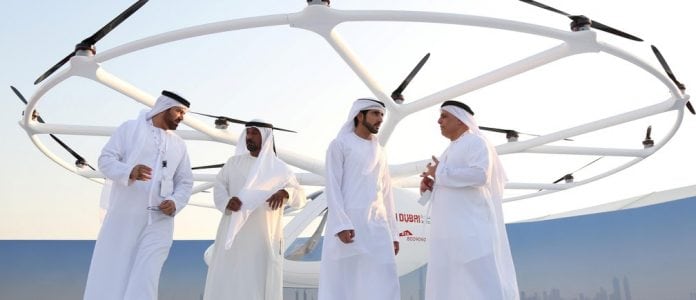
· The World Economic Forum’s second Annual Meeting of the Global Future Councils opened today
· The internet of things will contribute $10-15 trillion to the world economy over the next 20 years but rapid growth of the knowledge economy brings with it a shared moral responsibility
· Global leaders need to step out of their silos and develop principles and protocols to ensure new technologies benefit all citizens
The United Arab Emirates has declared itself an “open global laboratory” to transform the concepts of the Fourth Industrial Revolution into an international shared agenda, announced Mohammad Abdullah Al Gergawi, Minister of Cabinet Affairs and the Future of the United Arab Emirates, in an opening address at the World Economic Forum’s second Annual Meeting of the Global Future Councils. The meeting, taking place in Dubai on 11-12 November, is held in partnership with the Government of the United Arab Emirates.
The Global Future Councils will generate ideas and solutions that influence the future global, regional and industry agendas and feed into the programme of the Forum’s Annual Meeting 2018 in Davos-Klosters, Switzerland.
At the inaugural Annual Meeting of the Global Future Councils in 2016, Al Gergawi announced the UAE’s intention to develop a national strategy for the Fourth Industrial Revolution. Economic growth is increasingly driven by technological development and the capacity to innovate, he said. Al Gergawi also said that, over the next 20 years, the internet of things will contribute $10-15 trillion to the world economy. However, the rapid growth of the knowledge economy brings with it a shared moral responsibility to ensure that its benefits improve the lives of ordinary people around the world, added the minister.
In his welcoming remarks, Klaus Schwab, Founder and Executive Chairman of the World Economic Forum, hailed the “positive force of science to tackle some of the greatest challenges of our time.” However, in order to harness the transformative power of new technologies to build a sustainable future, leaders of global institutions need to “step out of silos and look at the world as a holistic ecosystem” of global interdependence, he said.
A new style of “agile governance” is required, in which leaders from business, government, academia and civil society collaborate to create the principles and protocols needed to ensure that emerging technologies are human-centred and serve society. As the world becomes increasingly multipolar, Schwab added, it is vital to create a “shared, positive and forward-looking narrative for humankind and a sense of commitment towards a common destiny.”

































